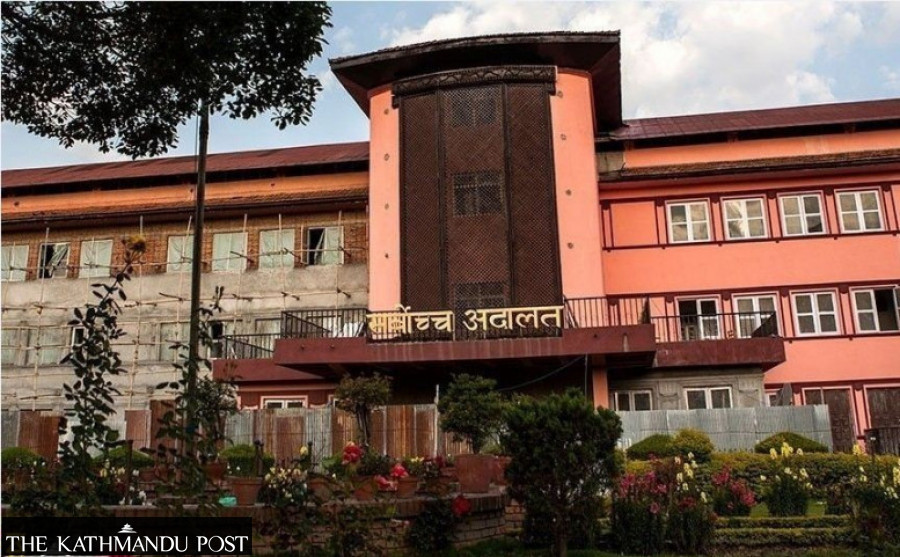National
Supreme Court to begin hearing petitions against Dahal tomorrow
NHRC expresses concern over unresolved issues, 16 years after the peace accord.
Binod Ghimire
Two separate writ petitions have been filed against Prime Minister and CPN (Maoist Centre) Chairman Pushpa Kamal Dahal at the Supreme Court asking for criminal investigation against him over insurgency-era atrocities.
Advocates Gyanendra Aran and Kalyan Budhathoki, who are also conflict victims, registered a pair of petitions against Dahal on Tuesday. They took exception to the Maoist chair taking responsibility for the deaths of 5,000 of the 17,000 people killed during the decade-long Maoist insurgency. Aran filed the petition on behalf of families of victims killed during the insurgency while Budhathoki represents the victims of insurgency-era lootings, displacements and torture.
“We have been able to register the petitions after a long struggle. We are optimistic that the Supreme Court will give justice to thousands of insurgency-era victims,” Budhathoki told the Post. The registration of the petitions was possible after the Supreme Court on Friday overturned the decision of its administration to reject the same petitions.
“Preliminary hearing on both the petitions will commence on Thursday,” Bimal Poudel, spokesperson for the apex court, told the Post.
Aran and Budhathoki had tried to register their petitions in November last year, but the court had refused to accept them claiming that the cases were related to transitional justice and already in the docket of the Truth and Reconciliation Commission.
The full text of Friday’s verdict, released on Sunday, states that seeking justice in insurgency-era cases of human rights violations cannot be stopped just because the transitional justice mechanisms are looking at them. It had ruled that the court administration’s refusal to register the petitions was neither justifiable nor logical.
“Looking at the gravity of the issue, it would be wrong to reject the petitions thereby closing the door to legal remedy,” reads the order.
On January 15, 2020, while addressing a Maghi festival celebration event in Kathmandu, Dahal had said that he, as the leader of the Maoist party that led the decade-long insurgency, would take the responsibility for the deaths of 5,000 people and that the state should take responsibility for the remaining deaths.
In their petitions, Aran and Budhathoki have demanded an order for the criminal investigation for the killings and other criminal acts Dahal and his party were a part of during the insurgency.
“We also demand an order for repealing laws, if there are any, that obstruct criminal investigation against Dahal,” reads one of the demands.
On November 14 last year, the court had also asked its administration to clarify its refusal to register the petitions against Dahal. A single bench of Acting Chief Justice Hari Krishna Karki had decided to seek a report on why the Supreme Court administration had refused to register the petitions filed by advocates Aaran and Budhathoki.
The Maoist Centre and its breakaway factions have been objecting to the decision of the court to allow the registration of the petitions. Against their claims that the insurgency-era cases of atrocities must be handled solely by the transitional justice mechanism, the apex court in its Friday’s ruling had said, “criminal justice process cannot be kept on hold, made ineffective and passive under any pretext”.
Meanwhile, the National Human Rights Commission on Tuesday urged the government and concerned sides to conclude transitional justice at the earliest.
In a statement, the commission said it is concerned as some issues are unresolved even after 16 years of a peace accord that mentioned delivering justice to conflict victims through a transitional justice mechanism.




 13.12°C Kathmandu
13.12°C Kathmandu














